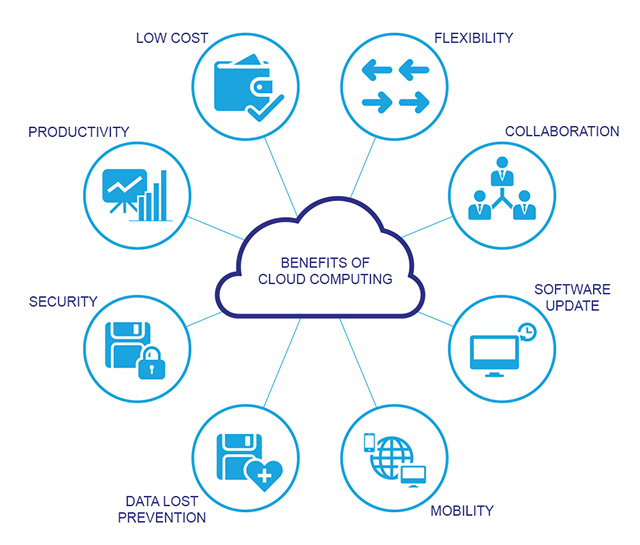In today’s fast-paced digital world, a reliable and high-speed internet connection is essential for businesses to thrive. One such option that has been providing steadfast internet connectivity is T1 service. In this article, we will delve into what T1 service is, its benefits, how it works, and how it compares to other internet solutions. We will also explore the installation process, common issues, and the future of this technology.
What Is A T1 Service?
T1 service refers to a dedicated and symmetrical internet connection that operates using copper or fiber-optic lines. It was one of the earliest solutions for businesses to access the internet, and despite the emergence of faster technologies, it continues to hold relevance in specific scenarios.
How Does T1 Work?
T1 service functions by dividing the available bandwidth into twenty-four 64 Kbps channels. These channels can be dynamically allocated to provide both voice and data services simultaneously. This allows businesses to have a dedicated and reliable internet connection without any contention from other users.
Advantages Of T1 Service
- Dedicated Bandwidth: Unlike shared internet solutions, T1 service offers dedicated bandwidth to businesses. This means the connection is not affected by the internet usage of neighboring businesses or homes, ensuring consistent speeds.
- Reliability and Consistency: This service guarantees high levels of reliability, making it suitable for businesses that heavily rely on uninterrupted internet access. It is often accompanied by Service Level Agreements (SLAs) that ensure minimum uptime and quick issue resolution.
- Symmetrical Upload and Download Speeds: T1 service provides symmetrical upload and download speeds, which is crucial for businesses that regularly transfer large files, host servers, or engage in video conferencing.
- Scalability: This service is scalable to a certain extent, allowing businesses to adjust their bandwidth requirements as their needs evolve.
- Service Level Agreements (SLAs): Service providers often offer SLAs with T1 service, guaranteeing a specific level of service quality and uptime. This ensures that businesses can rely on their internet connection when they need it the most.
Disadvantages Of T1 Service
While T1 service offers several benefits, it also has some disadvantages that businesses should consider before choosing it as their internet solution. Here are some of the drawbacks of T1 service:
- Cost: This service can be relatively expensive compared to other internet options. The dedicated nature of T1 service and the associated infrastructure costs contribute to its higher price point. This cost may not be feasible for small businesses or those with budget constraints.
- Limited Bandwidth: They provides symmetrical bandwidth, but the maximum speed it offers (1.5 Mbps) may be insufficient for businesses with high data demands or those requiring faster internet connections. Other technologies, such as fiber optics or cable internet, can offer much higher bandwidth capacities.
- Slower Speeds Compared to Alternatives: As mentioned earlier, T1 service may not be as fast as some newer internet solutions, such as fiber optic internet or 5G networks. For businesses that rely heavily on data-intensive activities like large file transfers or video conferencing, faster internet options might be more suitable.
- Longer Installation Process: The installation period for T1 service, as mentioned previously, can take several weeks. This longer installation timeline might not be ideal for businesses requiring immediate internet connectivity or those operating on tight schedules.
- Geographical Limitations: T1 service availability can be limited to certain geographical areas, particularly rural or remote locations. Businesses in such areas may not have access to T1 service or may face higher installation costs due to the need for additional infrastructure.
- Lack of Redundancy: While T1 service can be reliable, it does not inherently offer built-in redundancy. In case of line failures or outages, businesses relying solely on T1 service might experience downtime until the issue is resolved.
- Upgrade Limitations: While T1 service is somewhat scalable, its maximum capacity is still limited to 1.5 Mbps. For businesses with rapidly growing data needs, this limitation might hinder future expansion without switching to an entirely different internet solution.
- Competing Technologies: With the continuous advancements in internet technology, newer and faster alternatives are emerging, making T1 service less attractive for businesses seeking cutting-edge internet solutions.
- Service Provider Dependence: The quality of T1 service can vary based on the chosen service provider. Businesses must thoroughly research and select a reputable provider with a track record of reliable service and good customer support.
Despite these disadvantages, this service can still be a valuable and dependable internet option for certain businesses, especially those with specific requirements for dedicated and reliable bandwidth. To make an informed decision, businesses should carefully assess their needs, budget constraints, and the available alternatives before opting for T1 service.
T1 Service Providers
- Major Telecommunication Companies: Several major telecommunication companies offer T1 service as part of their business internet solutions. These providers often have widespread coverage and serve as a reliable option for businesses across different locations.
- Niche T1 Service Providers: In addition to major telecom companies, there are niche T1 service providers that cater specifically to businesses and organizations with unique requirements.
- Comparing T1 Service Providers: When choosing a T1 service provider, it’s essential to compare factors like pricing, SLAs, customer support, and scalability options to find the best fit for your business.
Is T1 Service Right For Your Business?
- Businesses with High Data Demand
T1 service is ideal for businesses with high data demands, especially those involved in data-heavy activities like video streaming, large file transfers, and data backups.
- Geographical Location
The availability and quality of T1 service can vary based on the business’s geographical location. Businesses in metropolitan areas often have better options compared to those in rural or remote locations.
- Budget Considerations
While T1 service offers numerous benefits, it might not be the most cost-effective solution for all businesses. It’s essential to consider your budget and compare it with the available options.
How To Choose The Best T1 Service Plan
- Bandwidth Requirements: Assess your business’s bandwidth requirements based on the number of employees, the nature of internet usage, and projected growth.
- Contract Terms and Pricin: Review the contract terms, pricing structure, and any additional fees associated with the T1 service plan.
- Customer Support and SLAs: Reliable customer support and favorable SLAs are vital for minimizing downtime and addressing issues promptly.
- Scalability Options: Choose a provider that offers flexible scalability options, allowing you to adjust your bandwidth as your business expands.
T1 Service Vs. Other Internet Solutions
- T1 Service vs. DSL: Compare T1 service with DSL to understand the differences in speed, reliability, and overall performance.
- T1 Service vs. Cable Internet: Explore the distinctions between T1 service and cable internet, including upload and download speeds, contention ratios, and reliability.
- T1 Service vs. Fiber Optic Internet: Consider the benefits of T1 service compared to fiber optic internet, such as reliability, dedicated bandwidth, and availability.
T1 Service Installation Process
- Site Survey and Feasibility Study: Before installation, a site survey and feasibility study are conducted to determine the viability of T1 service at your location.
- Installation and Testing: The installation process involves setting up the necessary equipment and conducting tests to ensure optimal performance.
- Activation and Customer Training: Once the installation is complete, the T1 service is activated, and customer training is provided to ensure users can utilize the service efficiently.
Installation Period Of T1 Service
The installation period of T1 service can vary depending on several factors, including the specific service provider, the location of the business, and the complexity of the installation process. On average, the installation of T1 service may take anywhere from two to six weeks.
During the installation process, a site survey and feasibility study are typically conducted to assess the viability of providing T1 service at the business location. This step involves evaluating the existing infrastructure and determining the necessary equipment and resources needed for the installation.
Once the site survey is complete and the service is deemed feasible, the actual installation process begins. This involves setting up the necessary equipment, such as T1 routers and switches, and connecting them to the telecommunication company’s network.
After the physical setup, thorough testing is performed to ensure that the T1 service is functioning correctly and providing the expected speeds and reliability. This testing phase is crucial to identify and address any potential issues before the service is officially activated.
The activation process involves finalizing the connection and making the T1 service fully operational for the business. Once the service is activated, customer training may be provided to ensure that users understand how to utilize the T1 service efficiently.
It’s important to note that the installation period may vary from one provider to another, and unforeseen circumstances, such as inclement weather or technical challenges, can also impact the timeline. To get a more accurate estimate of the installation period for T1 service, businesses should consult with their chosen service provider and inquire about the specific steps and timelines involved in their installation process.
Factors That Influence Installation Of T1 Service
The actual duration of the installation process may also be influenced by the following factors:
- Location:
The geographical location of the business plays a significant role in the installation period. Businesses in urban areas with established infrastructure may experience a smoother and faster installation process compared to those in rural or remote locations. In such areas, the availability of existing network infrastructure can streamline the installation process.
- Access to Infrastructure:
The accessibility of existing infrastructure can affect the installation timeline. If the business location already has the necessary cabling and network infrastructure in place, the installation may be quicker. However, in cases where additional infrastructure needs to be laid, such as in newly developed areas, the installation process may take longer.
- Service Provider:
Different service providers may have varying processes and resources, which can impact the installation period. It’s advisable for businesses to choose reputable and experienced service providers that can efficiently handle the installation and ensure a smooth transition.
- Customization Requirements:
In some cases, businesses may require specific customizations or additional features for their T1 service, which can extend the installation period. These customizations could include unique bandwidth needs, network configurations, or security requirements.
- Pre-Installation Preparations:
Before the actual installation begins, there might be paperwork, contracts, and agreements that need to be finalized. These pre-installation preparations can also add to the overall timeline.
- Testing and Quality Assurance:
Once the physical installation is complete, thorough testing and quality assurance measures are undertaken to ensure that the T1 service is functioning optimally. This step is critical to identifying and resolving any potential issues before the service is handed over to the business.
Common Issues With T1 Service
- Line Interference: Line interference can disrupt T1 service, leading to signal degradation and slower speeds. It’s essential to identify and rectify such issues promptly.
- Outages and Downtime: While this service is known for its reliability, occasional outages can still occur due to external factors or equipment failures.
- Equipment Compatibility: Ensuring that your business’s equipment is compatible with T1 service is crucial for optimal performance and reliability.
- Bandwidth Saturation: In some cases, businesses may experience bandwidth saturation, leading to slower speeds during peak usage hours. Proper bandwidth management can mitigate this issue.
Future Of T1 Service
As technology continues to advance, T1 service may face increasing competition from faster internet solutions like fiber optics and 5G networks. However, T1 service still holds its place for businesses with specific requirements for reliability and dedicated bandwidth.
Conclusion
T1 service remains a viable and valuable option for businesses in need of dedicated and reliable internet connectivity. Its symmetrical speeds, minimal contention, and service level agreements make it ideal for data-intensive activities and critical operations. Before choosing T1 service, businesses must consider their bandwidth needs, budget, and geographical location. By understanding its benefits and limitations, businesses can make an informed decision about whether T1 service is the right fit for their internet needs.






